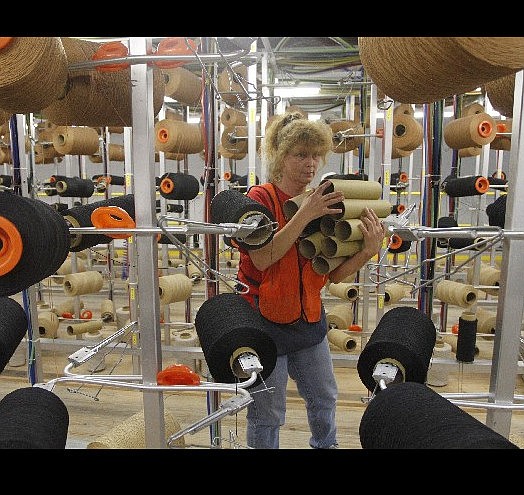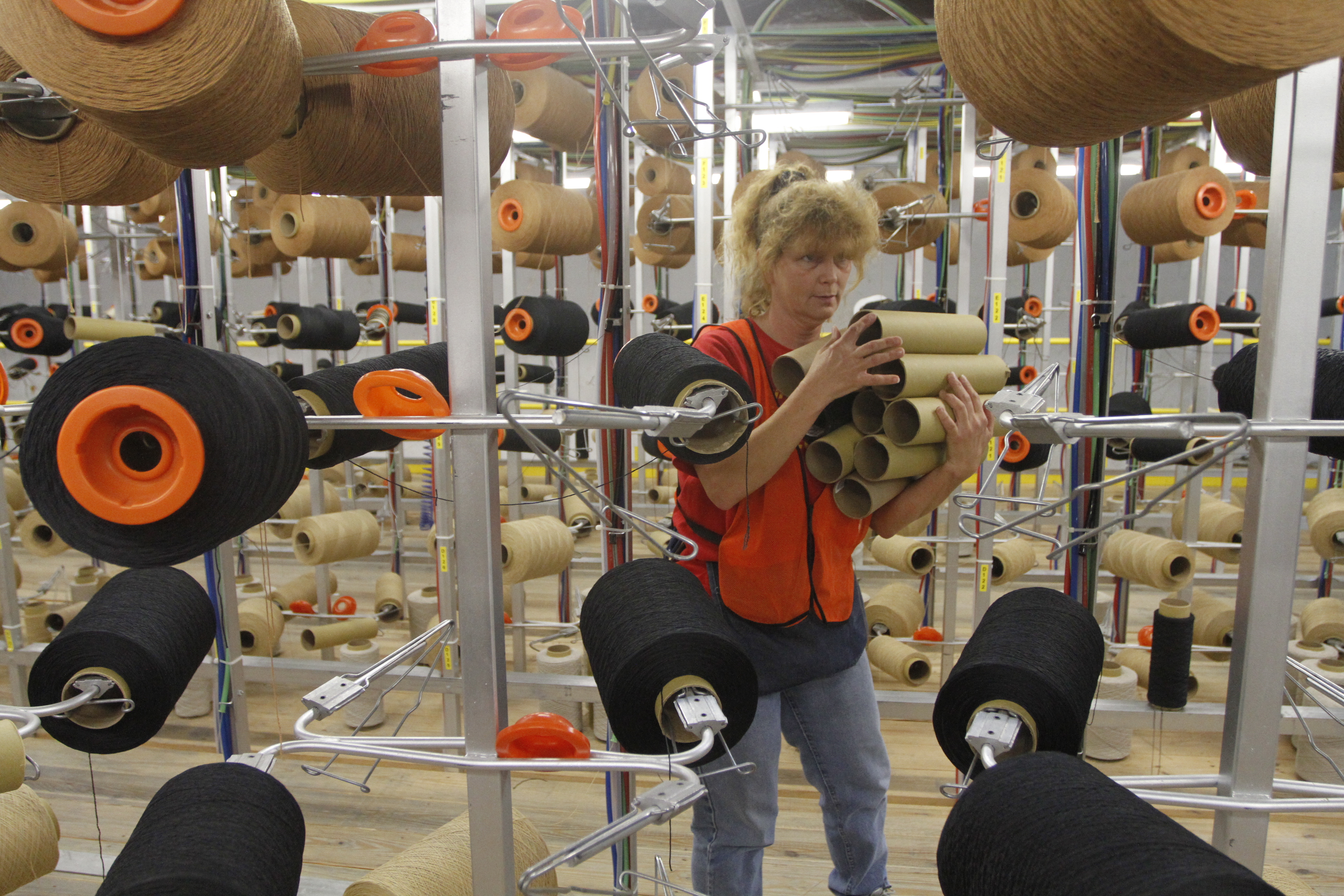Dixie Group posts gain amid concern over rising company operations costs
Friday, May 2, 2014
The Dixie Group fought through an expensive first quarter marred by severe weather and a complicated acquisition to beat Wall Street earnings estimates by 12 cents per share, the company reported.
But concerns over the cost of the company's operations pushed the stock down Wednesday afternoon, as Dixie closed at $15.07 per share, down 54 cents, or nearly 3.5 percent.
Though the Chattanooga-based carpet maker's grew revenue to $85 million following the acquisition of Atlas Carpet Mills from $75 million in the first quarter of 2013, expenses piled up as Dixie attempted to merge the companies' dyeing operations in California.
Dixie acquired Atlas in March 2014 for $17.5 million, and plans to finish consolidating the companies' operations by 2015. Atlas had sales of about $53 million in 2013, much of that in the broadloom and modular carpet tile markets. While Dixie has long planned to combine dyeing facilities on the West Coast, Dixie's chief operating officer, Kennedy Frierson, has said that the manufacturing, distribution and administrative operations of Atlas will stay as-is for now.
Shutting down Atlas' California dyeing operation in order to expand capacity by 75 percent cost about $445,000, while multiple shutdowns of Dixie's East Coast operations during winter storms added another $1.1 million in costs during the quarter, Frierson said.
However, the profit from the anticipated sale of Atlas' old dyeing facility helped balance out what would have been a $2.47 million loss during the quarter for the carpet maker.
"We did not perform as well as needed in containing cost during this volatile time and have taken actions to increase profitability through improved operational performance and tighter cost control," Frierson said.
Thanks to a one-time $8.7 million boost from the sale of the California facility, Dixie reported profits of $3.3 million, or 24 cents per share, up from earnings of $651,000, or 5 cents per share, during the same period in 2013.
Combining the overall sales of Dixie and Atlas, revenue rose 13.1 percent during the quarter over the prior year, Frierson said. Even without Atlas, Dixie's operations still increased sales by 10.9 percent, while the overall carpet market shrunk by "a few percentage points," he said.
Dixie continued to boost its formerly flagging commercial sales, which rose 18 percent during the first quarter over the same period in 2013, or 9.6 percent without adding Atlas' contribution. Residential sales rose 9.4 percent year-over-year.
Aside from the costs of the Atlas acquisition, Dixie plans to spend millions more to upgrade its own operations, rebrand its Robertex wool carpet and consolidate its distribution network. Second-quarter orders, which are up by 15 percent, could help pave the way for a larger, more competitive Dixie.
"We feel that the industry was impacted, as were we, by the bad weather in much of the country in the first quarter," Frierson said. "However, we feel positive about the future and that the trend of a rebounding housing market and improving commercial market is ongoing."
Contact staff writer Ellis Smith at 423-757-6315 or esmith@timesfreepress.com with tips and documents.

